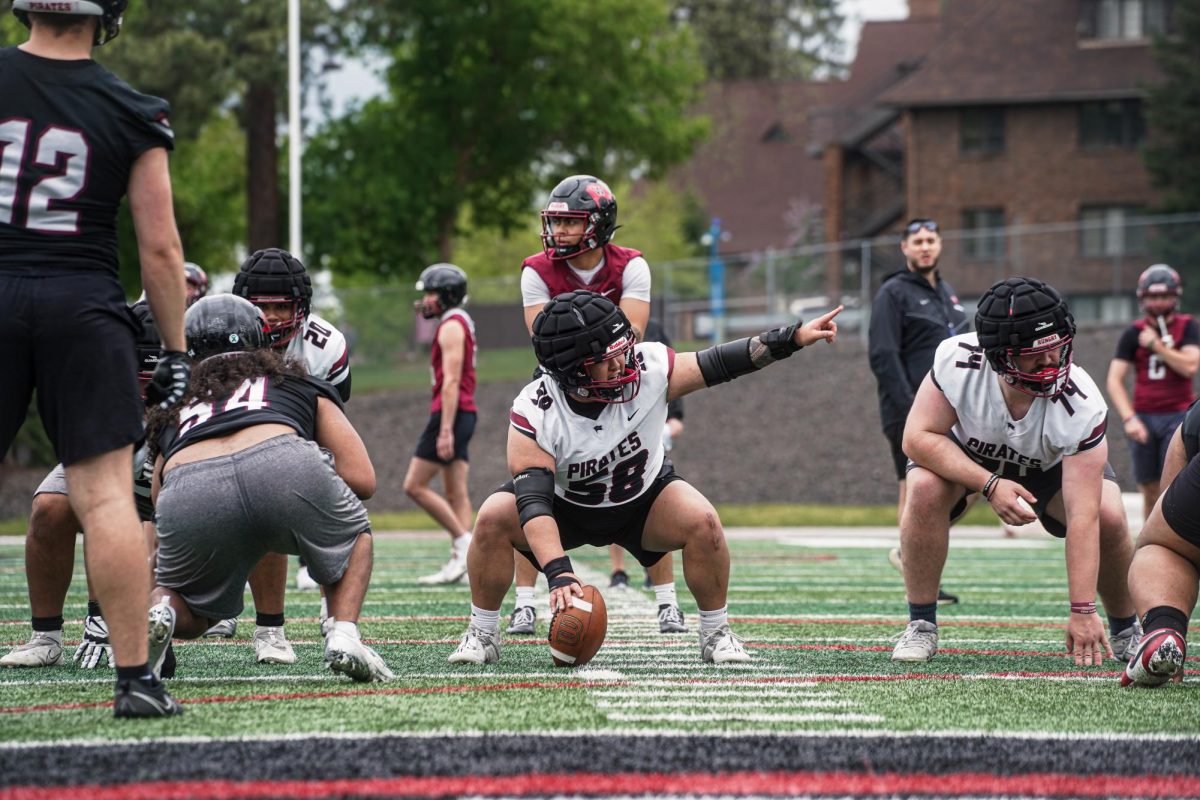For Whitworth students, the Big Three define the rules and regulations that are expected of them. However, students who compete in Whitworth’s athletics face a different set of rules when it comes to alcohol and off-campus partying.
Additionally, the policies for athletes vary depending on the sport they play. The women’s soccer team has strict policies blatantly prohibiting any form of drinking during the season; however, other teams such as the football team have policies less specific concerning rules and regulations.
The football team abides by the Big Three as laid out in Whitworth’s Student Handbook. However, the team has an additional set of values that is expected to be upheld by the athletes. The team’s “Be a Man” philosophy encourages athletes to take responsibility for their actions, avoid passivity, lead courageously and embrace God’s reward of a significant life. However, there is not much specific material concerning alcohol and partying.
“The more rules you have, the worse it is,” Head Coach Rod Sandberg said. “In our program we talk a lot about, not rules, but who do we want to be? Where’s our heart?”
Other than a couple of incidents, Sandberg has not experienced a large problem with athletes drinking and has not had to take serious action against any students.
“I couldn’t have a rule for everything they can’t do,” Sandberg said. “I want to talk about being a man and taking responsibility. You want to go a party and drink? You better accept responsibility for that.”
The athletes themselves see the “Be a Man” philosophy as a reasonable expectation for the football team. “They ask us to adhere to school rules, but also to consider the greater implications, even if you are of age, of what it means to be part of that culture,” sophomore Brad Benton said. “How does that reflect you not only as a football player, but as a person?”
Junior Noah Schultz-Rathbun sees the expectations as reflective. Even though the football team has 96 players, Schultz-Rathbun has seen no issue with drinking among his close friends on the team.
“Everything we do reflects on ourselves and on the team,” Schultz-Rathbun said. “I think about how everything I’m going to do is going to reflect on Coach Sandberg.”
While an ambiguous policy focused on responsibility and character has proven effective for the football team, not every Whitworth team has crafted identical policies.
The women’s soccer team signs a contract at the beginning of their season requiring them to commit to a dry season. The women are forbidden from drinking any alcohol during the season with the first offense resulting in a loss of 10 percent of an athlete’s season. A second offense results in removal from the team for the year and/or for the rest of their time at Whitworth.
During her last year of coaching the women’s soccer team before resigning, former Head Coach Jael Hagerott implemented the rule for the 2015 season to make the rules clear and eliminate any room for confusion. While the policy contrasts other teams, athletes have found it to be a reasonable and effective set of rules.
“Alcohol during season doesn’t help your performance,” junior Jenna Morris said. “There haven’t been any issues or oppositions to that.”
However, with different policies for each team, questions arise concerning different standards. With most athletes only playing one college sport, students like Morris see their policy as the best option.
“For our team, definitely [a] clean cut [policy] has worked really well,” Morris said. “Whereas, if it was vague, I think that could be more dangerous.”
However, Hagerott sees the freedom coaches have used as a tool to make their policies. While the specific policies are not identical, each coach has the ability to craft rules that will be effective for their athletes.
“What has happened in the past is that we have been given that freedom to come up with our own policy,” Hagerott said. “I feel like every coach has set a high standard. We just want to make sure, on the women’s soccer team, that we represent ourselves well at Whitworth and in the community.”
While different policies have been set for different teams, coaches seem to rely on the respect the athletes have for their sport to guide their actions. Whether that respect results in strict policies or ambiguous guidelines, is up to the coach.
Contact Peter Houston-Hencken at phouston-hencken17@my.whitworth.edu







 Spokane?
Spokane?